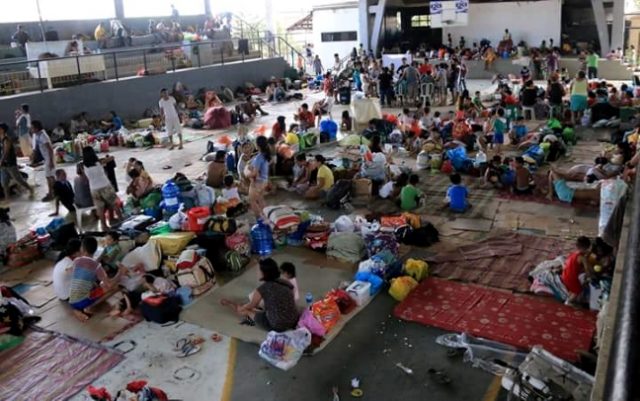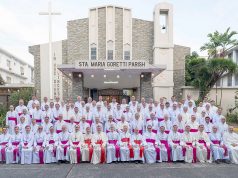
Cagayan de Oro City has been hit by water shortage after the Cagayan de Oro City Water District (COWD) shut down operations of production wells to prevent water contamination.
In an advisory, the COWD said operations of the Macasandig village (Production Wells 7, 9 and 30) and Balulang village (Production Wells 19 and 24) and the Macasandig Booster Station were temporarily stopped due to the rising water level in the area, which may contaminate the water supply.
Among the affected areas of the shut down are the City Proper, Nazareth, Macasandig, Camaman-an, Burgos, Consolacion, Lapasan, portions of Gusa, Puntod and Macabalan villages.
In order to restore normal water supply in the entire service area, the COWD said they will have to conduct a clean-up of the collector wells of Booster Pumps 1 and 2 and Production Wells 1, 7, 9, 30, 19 and 24 after which disinfection will be carried out.
Motors and controllers will also have to be rehabilitated before the wells can be commissioned back to service. However, this will take more or less 13 days to complete and restore its previous state.
While undertaking the clean-up and rehabilitation work, the water district will install clustered faucets in Tomas Saco-15th, Pabayo-Dolores Sts., Lapasan Barangay Hall, and Kauswagan Highway (across SaveMore, beside McDonalds).
The COWD has also put up water tanks or bladders in barangay halls at Macasandig, Nazareth, Macabalan, Puntod, Camaman-an, and Aluba.
The water delivery, according to COWD, will continue to be facilitated to evacuation centers, hospitals and other waterless areas through the COWD tankers, Bureau of Fire Protection fire trucks and volunteer fire trucks. Extraction points for this purpose are along Sta. Cecilia Subdivision and along Capitol University Medical Center in Gusa.
The advisory added that even though the water from COWD sources is safe, the public will have to boil water for drinking purposes as contamination may have happened due to improper handling and storage.
Meanwhile, Teodoro Sabuga-a Jr., the City Social Welfare and Development (CSWD) head, said 24 barangays in the city were affected by the storm and a total of 5,599 families or 21,512 individuals were evacuated on Friday, December 22.
Sabuga-a added that on Saturday, December 23, 2,799 families have gone back to their homes while 2,800 families or 10,960 individuals are still in evacuation centers.
Out of the 5,599 individuals, according to Sabuga-a, 4,083 are children; 615 are senior citizens; 67 persons with disabilities; 286 lactating mothers; and 88 pregnant women.
The city has not recorded deaths and injuries, so far, Sabuga-a said.









